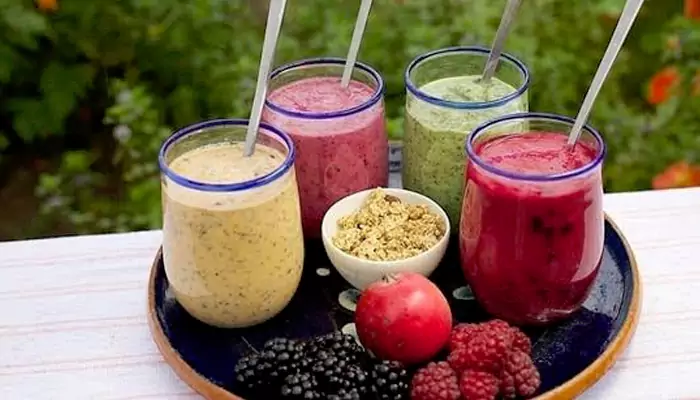
Milk has been a staple in diets around the world for thousands of years, offering a rich source of nutrients including calcium, vitamin D, and potassium.
However, with the rise of dietary restrictions, allergies, and personal health goals, the variety of available milks has expanded far beyond what comes from a cow. Let’s delve into six different kinds of milk, helping you to decide which one might be the right choice for you.
Cow's Milk
Cow's milk is by far the most common and widely consumed type of milk. It's prized for its excellent source of protein, calcium, and vitamins B12 and D. Available in whole, 2%, 1%, and skim (fat-free) varieties, it can fit into various dietary preferences. However, for individuals with lactose intolerance or dairy allergies, cow's milk might not be the best choice.
Soy Milk
Soy milk, made from soybeans or soy protein isolate, offers a creamy texture similar to that of cow's milk. It's a popular choice for vegans and those allergic to dairy. This milk is a good source of protein, calcium (when fortified), and vitamins A and D. It also contains isoflavones, compounds that may have antioxidant properties and contribute to a reduced risk of heart disease.
Almond Milk
Almond milk is made from ground almonds and water and is naturally low in calories and fat. It's a great option for those looking to manage their weight or reduce calorie intake. While almond milk is not naturally high in protein, it is often fortified with calcium and vitamin D. Its mild, slightly nutty flavour makes it a versatile choice for cereals, smoothies, and baking.
Oat Milk
Oat milk has gained popularity for its creamy texture and environmental sustainability. Made by blending oats and water, it's naturally sweet and high in fibre, particularly beta-glucans, which are known to help lower cholesterol levels. This milk is also an excellent choice for those with allergies or intolerances, as it's free from nuts, lactose, and soy. However, it's typically lower in protein than cow's or soy milk.
Coconut Milk
Coconut milk, derived from the flesh of coconuts, offers a rich, creamy texture and a distinct tropical flavour. It's high in saturated fats, specifically medium-chain triglycerides (MCTs), which are thought to support weight loss and metabolism. However, it's lower in protein and calcium, making it less ideal for those seeking a nutrient-rich milk alternative.
Rice Milk
Rice milk is made from milled rice and water, making it the most hypoallergenic of all milk options. It's free from soy, nuts, gluten, and dairy, ideal for those with multiple allergies. Rice milk is naturally sweet and light in texture, though it's low in protein and often fortified with calcium and vitamin D to enhance its nutritional profile.
Choosing the Right Milk for You
When deciding which milk is right for you, consider your dietary needs, health goals, and taste preferences. For those with dairy allergies or lactose intolerance, plant-based options like soy, almond, or oat milk might be best. If you're seeking to increase your protein intake, cow's milk or soy milk are excellent choices. For those managing their calorie or fat intake, almond or rice milk could be preferable.
With a multitude of milk varieties available on the market today, there's something for everyone. Whether you prioritize nutrition, flavour, or environmental sustainability, exploring different types of milk can help you find the perfect match for your dietary needs and lifestyle. The best choice of milk is one that not only meets your nutritional requirements but also delights your taste buds and fits into your daily routine.











